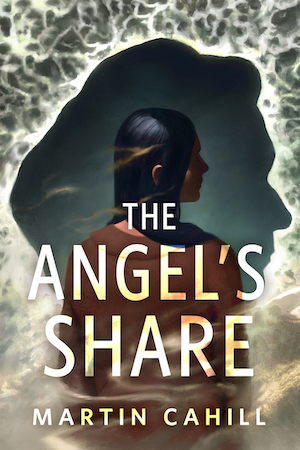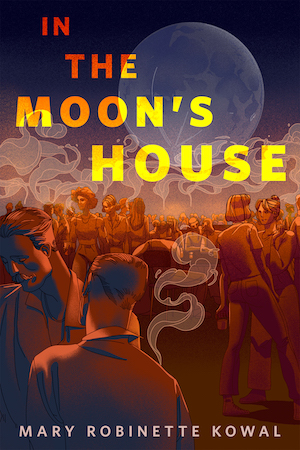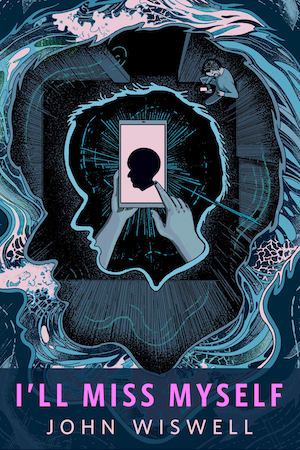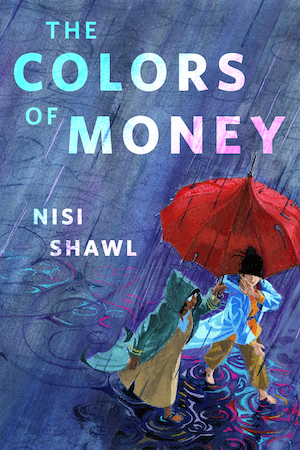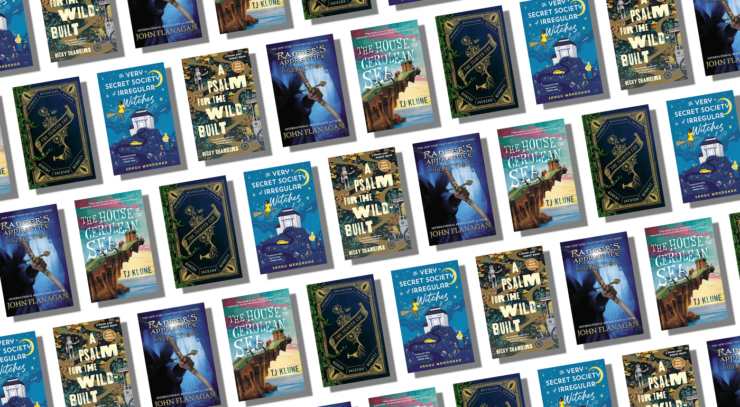You know them, you love them: Quirky mentor figures are a cornerstone of the SFF genre. They impart lessons to us as they guide their misguided or misunderstood mentees toward a better path. Their teachings can help prompt a hero toward self-discovery, give them the tools to choose right over wrong, or open their minds to new perspectives. Their charming eccentricities and pithy quotes stick with us long after we close the final page. And when a mentor tragically passes away, as mentors sometimes do… there are few losses more heartbreaking, or more lasting.
Today, we’re here to pay homage to five great mentors from SFF books. I invite you to celebrate your own favorites in the comments—nominate your wisest and quirkiest fictional mentors there, and if you’re in a sharing mood, feel free to add your favorite lessons or quotes!
Ana Dolabra (The Tainted Cup by Robert Jackson Bennett)
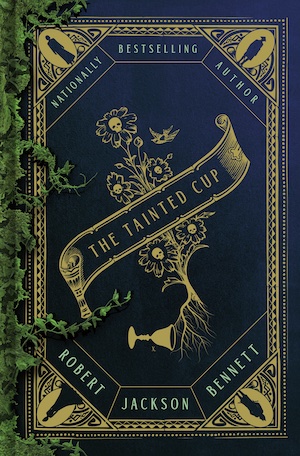
A murderous plot. A mysterious (and lethal) plant. Shady characters. A society under constant threat. These are the driving elements of Robert Jackson Bennett’s The Tainted Cup. The book recently featured on my list of SFF mysteries, and it appears again today so that we can shine a spotlight on the glorious and enigmatic Ana Dolabra.
Protagonist Dinios Kol works for Ana Dolabra on various investigations. Din is an engraver, able to capture memories and log them in his brain to be magically recalled in the future. This makes him an ideal investigator. Ana is also a grafted (magically altered) individual, or at least it’s strongly hinted that she is. Despite not knowing what her enhancements might be, readers are sure to be fascinated by this quixotic and brilliant eccentric with a sharp tongue and all sorts of undiscovered secrets.
As the story unfolds, it’s as though we’re seeing the mystery (and their mentor/mentee relationship) through the admittedly capable eyes of Din, as the Watson figure. All the while, Holmes (Ana, in this case) is six steps ahead. When Din unravels a piece of the puzzle, we find that Ana had figured it out long before he did. Bit by bit, we get to know one of SFF’s quirkiest mentors in recent memory, one who seems to want the best for her charge but clearly has motives of her own. In other words, Ana isn’t just a vehicle for Din’s character arc. She is a dynamic character with big plans. It makes you wonder whether her mentorship and acceptance of Din are altogether benevolent. Ana Dolabra consistently undercuts and upends our expectations, and The Tainted Cup is better for it.
Mika Moon (The Very Secret Society of Irregular Witches by Sangu Mandanna)
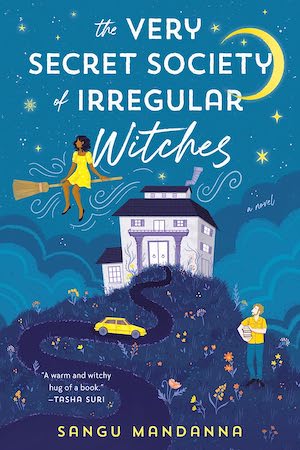
Mika Moon arguably subverts the norm for SFF mentors simply by being the protagonist of her story—stories seem to focus more on the development of the mentee figure, with their teacher serving to guide them along their journey. The Very Secret Society of Irregular Witches has several characters that could find a place on this list, but Mika stands out above the rest. Thrust into an unexpected situation where she must teach three young witches to control their magic; she finds herself being absorbed into a small, secluded household, surrounded by well-meaning people with a lot to learn.
Mika’s experience as a witch up to that point had been one of loneliness and isolation. Witches are stay solitary as a rule, rarely keeping friends or staying in one place for long. The risks of being discovered as a magic user have been driven home by the long history of violence and barbaric punishments spread out across the centuries—nobody wants a repeat of Salem. By cleverly planting Mika Moon into a friendly and loving environment (and providing her with more and more reasons to stay, despite her misgivings), author Sangu Mandanna gives our protagonist space to grow and share her wisdom. Mika easily makes this list because she is knowledgeable, kind, and a little bit quirky. She’s especially good with plant- and nature-based magic. Perhaps best of all, she has lots to learn about herself, even as she grows to care for her young charges. This creates a two-way mentorship environment: Mika opens up and shares her true self with the kids and the denizens of their remote country house while absorbing lessons about interdependence, trust, and love from these new friends and loved ones in turn.
Arthur Parnassus (The House in the Cerulean Sea by TJ Klune)
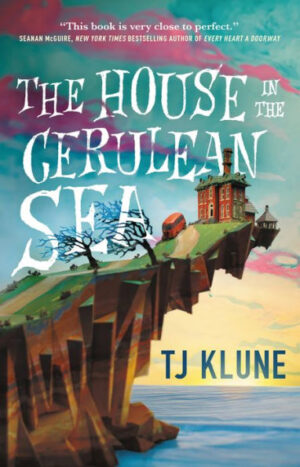
The sweet and delightfully eccentric Arthur Parnassus is among my favorite father figures in all of fantasy. He manages his band of little ones, all magical misfits, with great care and empathy. He’s also a strong mentor, deftly imparting lessons through experience instead of lecturing.
Throughout The House in the Cerulean Sea, we witness Arthur teach the magical youth in his care about pursuing their passions and loving without prejudice. However, he’s not without his flaws. He is (justifiably) reticent to bring the children to a local village, fearful of the discrimination they might face in the world beyond his idyllic seaside home. Arthur also has a fiery secret of his own, and he goes to great lengths to keep it from Linus, our protagonist.
What makes a good mentor? To me, it’s crucial to understand your own flaws—and working on them—while sharing what you’ve learned with others. Arthur is a perfect example—and on top of his excellent guidance and compassion, Arthur also has an incredible fashion sense. (His coffee-shop loungewear chic vibe just works for me…)
Halt (The Ranger’s Apprentice by John Flanagan)
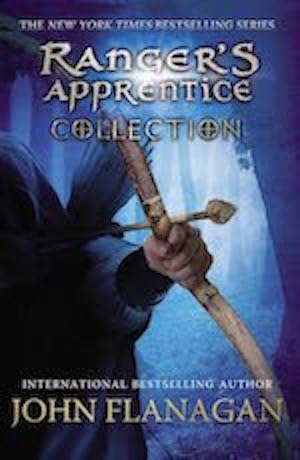
The unlikely ranger/apprentice partnership between Halt and Will still makes me smile. I was thoroughly obsessed with John Flanagan’s Ranger’s Apprentice series back in the day, and it holds a special place in my heart as a gateway to big ol’ sweeping epic fantasy narratives.
Halt is essentially the father Will never had. He’s also a grizzly, gruff, and stubborn old man who has no qualms about doling out tough love. The relationship between the two grows ever more endearing as the series progresses, solidifying it as one of my favorite mentorship arcs in fantasy. I more inclined to enjoy a story where mentors aren’t perfect, cookie-cutter wise folk who feel like they were cut completely out of morally good cloth, without any nuance or weak points. Halt has problems, and he is as open to learning as he is to teaching. There are many moments in the series in which Halt finds himself in deadly trouble, and Will must apply his teacher’s lessons to save Halt. It’s a wonderful depiction of the give-and-take of a mentor/mentee relationship, and it made me want to seek out SFF books with similar pairings.
Dex (A Psalm for the Wild-Built by Becky Chambers)
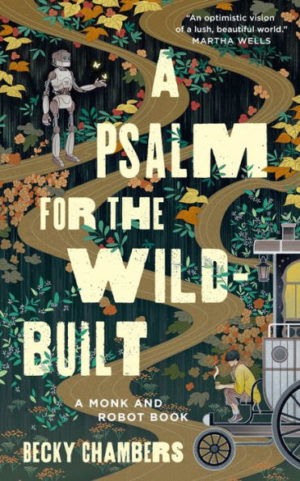
Sibling Dex leaves their corporate desk job for a wandering life in a tea cart. They use their itinerant lifestyle to meet and offer a sympathetic ear to people while sharing tea—a skill few people have mastered (except for Uncle Iroh, of course). Dex’s approach to mentorship is mirror-like, allowing their patrons to freely express their worries and conundrums, think things through and formulate their own solutions. Dex, as a mentor, creates a safe space and simply listens…and that’s arguably the best thing a mentor can do for their pupils.
Dex’s own journey, however, isn’t so cut-and-dry. They become disenchanted with the nomadic lifestyle and pine for adventure. A wise mentor takes time to do what they need for themselves, and Dex is a prime example of listening to their own needs, and extending the same compassion they have for others to their own existence. Sometimes, the best mentor is the one in our heads. Or a friendly robot (read the book, and it will all make sense—I promise).


